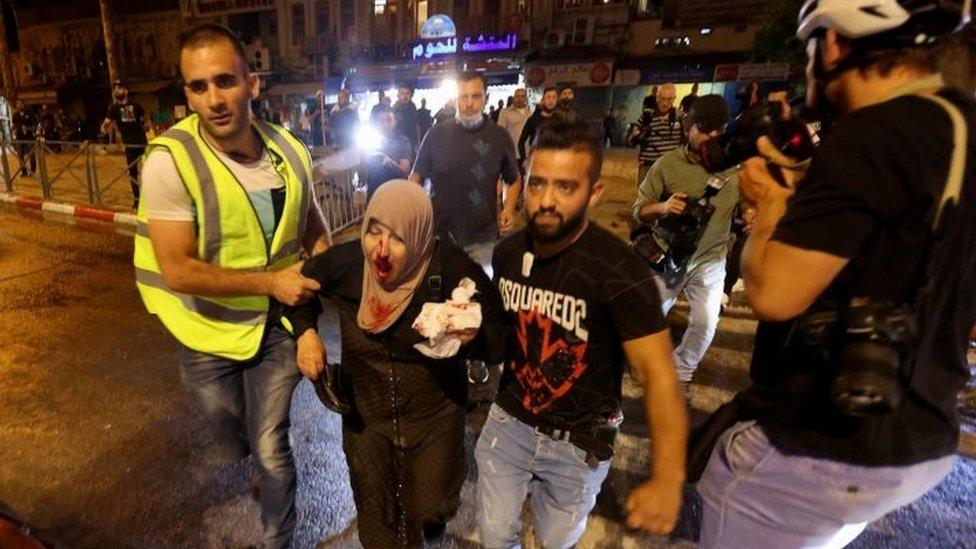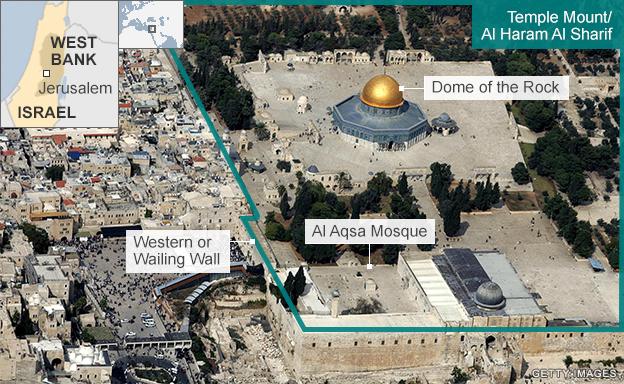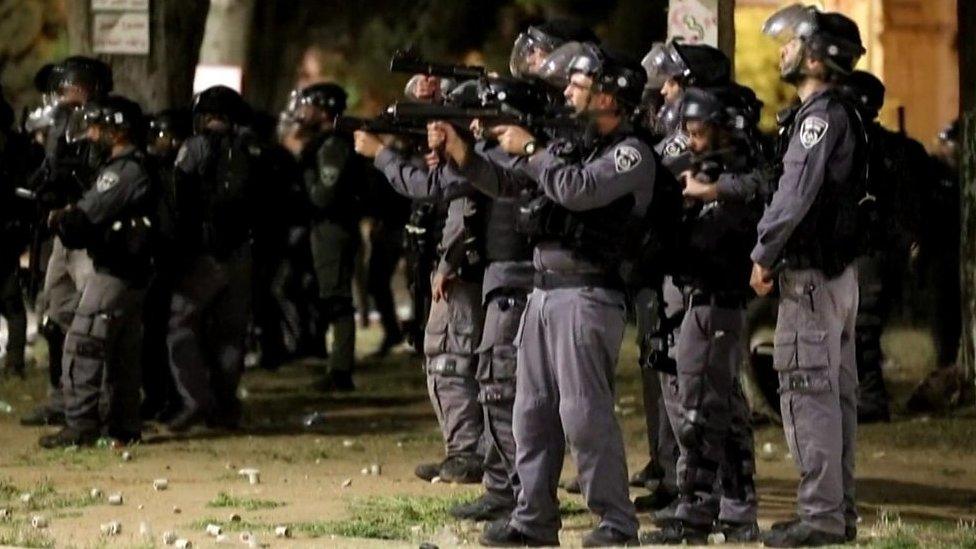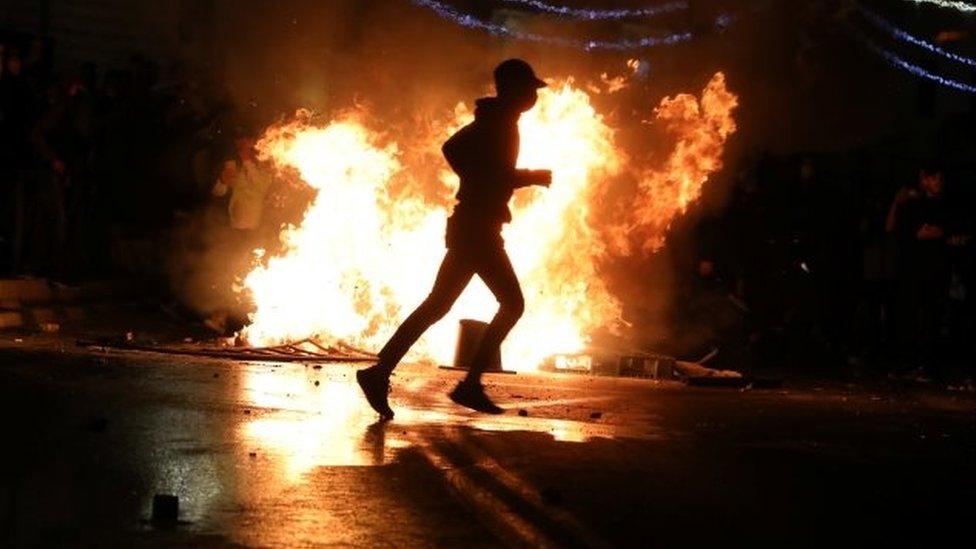Jerusalem: Many injured on second night of clashes
- Published
Clashes in Jerusalem continue
Fresh clashes between Palestinians and Israeli police broke out in Jerusalem on Saturday, injuring dozens.
Protesters hurled stones at the police at Damascus Gate in the Old City, and officers responded with stun grenades, rubber bullets and water cannon.
Palestinian medics said 90 Palestinians were wounded. Israeli police said at least one officer was hurt.
It follows days of simmering unrest over possible evictions of Palestinians from land claimed by Jewish settlers.
On Friday, more than 200 Palestinians and at least 17 Israeli police were wounded in skirmishes near Al-Aqsa mosque, emergency workers and police said.
Jerusalem's Al-Aqsa mosque complex is one of Islam's most revered sites, but its location is also the holiest site in Judaism, known as the Temple Mount. The complex is a frequent flashpoint for violence, but Friday's was among the worst in years.
The Quartet of Middle East negotiators - the US, the EU, Russia and the UN - on Saturday expressed "deep concern" over the spiralling violence.
Neighbouring Jordan, meanwhile, condemned the actions of Israeli special forces and police, describing the violence towards the mosque and worshippers as "barbaric" in a government statement.
In a separate development on Saturday, Israel's military said a rocket was fired by Palestinian militants from the Hamas-run Gaza Strip into Israel.
"In response, our aircraft just struck a Hamas military post in southern Gaza,", external the Israel Defense Forces (IDF) tweeted.
The IDF did not provide any more details, but Israeli media reported that the rocket landed in an open field causing no injuries or damage.

A number of injured people were taken to hospital, the Palestinian Red Crescent emergency service said
Saturday's clashes broke out at Damascus Gate after tens of thousands of worshippers had prayed at Al-Aqsa mosque for Laylat al-Qadr, the most holy night in the Muslim month of Ramadan.
The Palestinian Red Crescent said at least 90 Palestinians were hurt, and 14 were taken to hospital.
Earlier on Saturday, Israeli police had stopped dozens of buses carrying worshippers to the mosque, and a number of Palestinians were arrested after Friday's violence.
"They do not want us to pray. There is a fight every day, every day there are clashes. Every day there are troubles," Mahmoud al-Marbua, 27, told Reuters news agency.
Israel's Prime Minister Benjamin Netanyahu said his country was acting responsibly to ensure law and order while maintaining freedom of worship.
Palestinian leader Mahmoud Abbas condemned what he said were Israel's "sinful attacks".
What's the background to this?
Israel has occupied East Jerusalem since the 1967 Middle East war and considers the entire city its capital, though this is not recognised by the vast majority of the international community.
Palestinians claim East Jerusalem as the future capital of a hoped-for independent state.
Tensions have been rising over the threatened eviction of Palestinian families in East Jerusalem's Shaikh Jarrah district.
The UN says Israel should call off any evictions and employ "maximum restraint in the use of force" against protesters.
The League of Arab States has called on the international community to intervene to prevent any forced evictions.
Israel's Supreme Court is expected to hold a hearing on the long-running legal case on Monday.

Related topics
- Published8 May 2021

- Published23 April 2021
